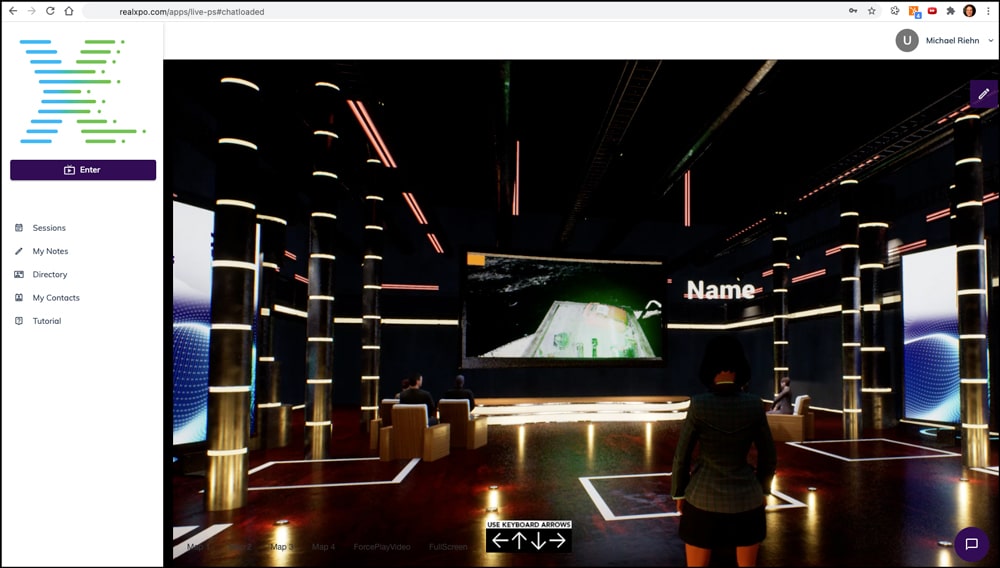
Many of the major live events of 2020-21 have been canceled or postponed due to the COVID-19 pandemic. Meanwhile, the virtual conferences and events that survived have adapted through technology.
Events ranging from basic Zoom meetings to more immersive online events are thriving because they aren’t afraid of the new world. In other words, where there is change, there is opportunity. Smart event planners are re-imagining the future of conferences so they are ready when the new normal arrives. Many event planners will adapt with hybrid events that feature a mixture of online and offline collaboration and communications.
However, creating an engaging online virtual conference or live streaming event can be difficult without the right development partner. On the other hand, it’s easy to avoid the most common mistakes.
1. Avoid Pre-Recorded Content that Isn’t Engaging
Prerecorded content will eliminate mistakes and bring a polish to your presentation. But is this the main goal of a conference? Think back to your best conference experiences. The best conferences happen when you interact with other people. Consequently, attendees don’t attend trade shows and conferences to watch video they could experience from anywhere.
However, attendees travel to shows for experiences, such as: networking, interaction with other people, and real time Q&A sessions. If your online conference is excluding these features, are you really hosting your best conference? Use pre-recorded content where it makes sense. Everywhere else, create interaction.
2. Unrealistic or Simple Virtual Conference Environments
People travel to shows to get away from their everyday routine. By immersing attendees in beautifully designed spaces, they can get away from the comfort of their homes or offices. 3D realism has improved over the past few years, even on the basic web. Do you want to stage your event on the moon or on top of an active volcano? Is it possible to interact with others with customized avatars? Technology has advanced where interactive environments are possible and cost efficient. Pay attention to your online environment. Does it match the effort and look you would put into a live event?
3. Complicated Technology
Is your online virtual conference able to accommodate everyone? The pandemic has made everyone a little more tech savvy, but there is still a barrier for many advanced technologies. Is your conference software easy to use and/or can be learned easily? Can you access it from the web or mobile device?
4. Large Application Downloads
Installation of large applications are not ideal for many reasons. Many companies restrict installing software. Not all people are able to understand software setup or don’t have the time to add complicated software. Applications that can be experienced from a web browser or mobile device is the best way to achieve a wide audience.
5. Not Choosing the Right Virtual Conference Platform
You may only get one chance to provide a new experience for your regular in person attendees and vendors. Will a basic zoom call or online video conference be enough? Won’t they expect more? As a result, the most common mistake that event planners make involves choosing the wrong platform. It’s important that you compare different virtual platform providers and pick the one which fits your event needs.
As virtual conferences are new to many event organizers like you, it’s good to prefer an all-in-one event management web application that integrates with video service providers. For example: YouTube, Zoom, or Microsoft Teams can be used for attendee ease. Above all, the right platform will help you to manage many features all in one place:
- Online Chat
- Immersive Interactions
- Vendor Booth Setup
- Product Demonstrations
- Attendee Registration
- Conference Promotions
- Payments
- Event Schedules
- Live Content
- Recorded Content
- Live Q&A
- IT Support
- Video Service Integration
- Secure Login
- Mobile and Web Access
- Plus much more…
In conclusion, studies show that virtual connections and online conferences allow for a better experience and deeper relationships for attendees than hosting a basic online meeting. Most importantly, talk to an online conference developer today to see what is possible for your next event.
